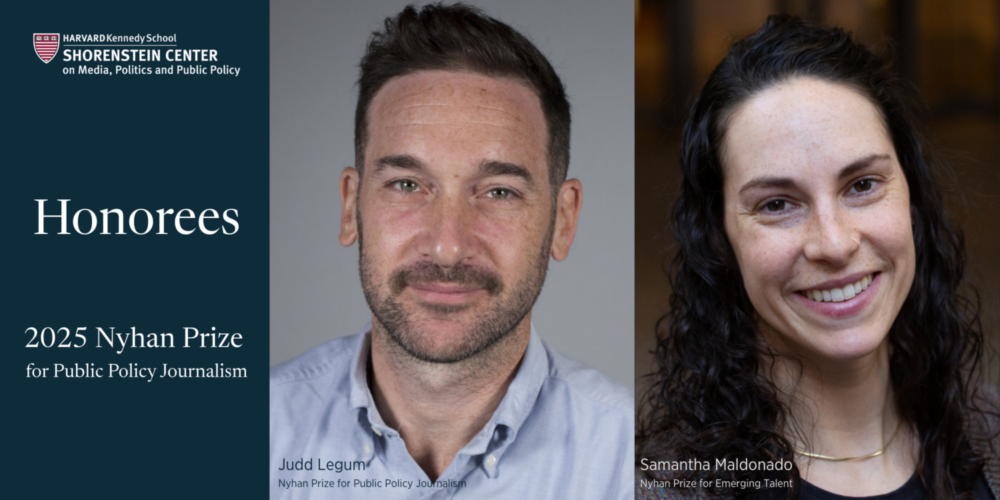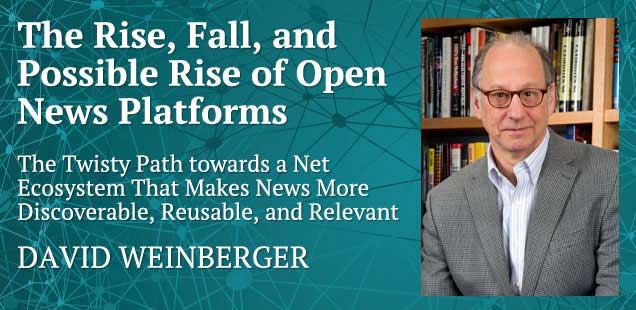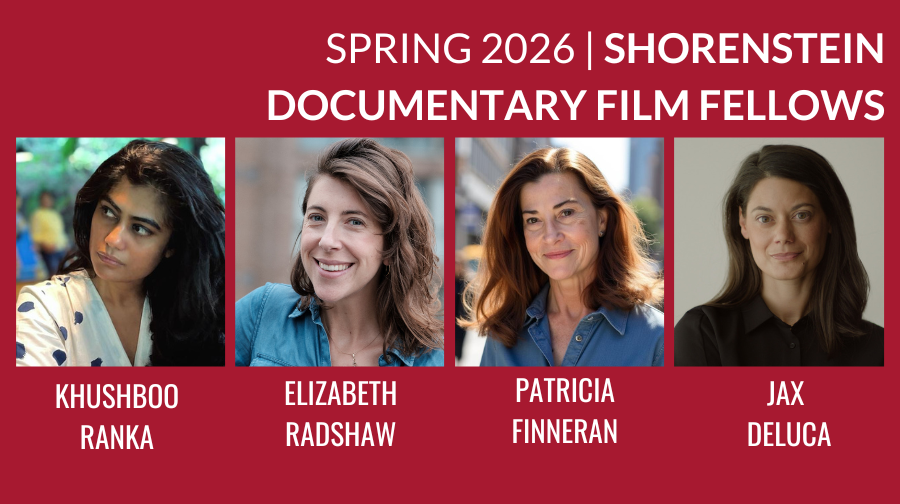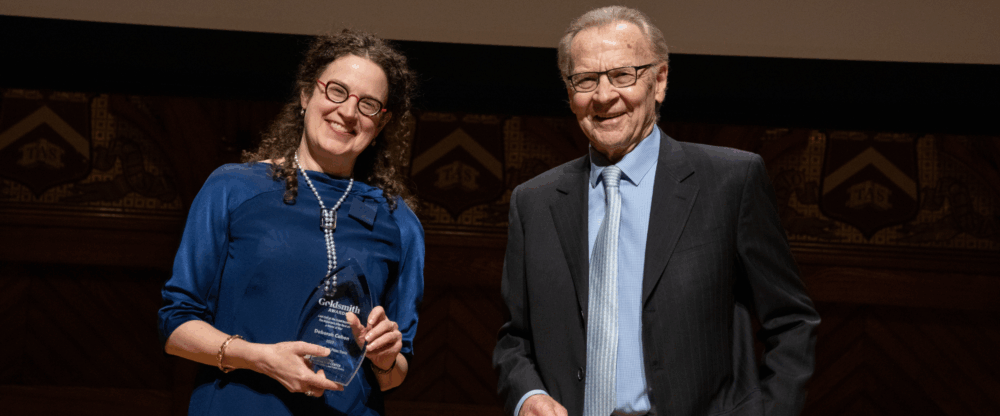
Center News
Judd Legum and Samantha Maldonado win Nyhan Prizes
Newsletter

Our weekly roundup of news found at the intersection of media, politics, policy and technology, from the Shorenstein Center and from around the web.
The Rise, Fall, and Possible Rise of Open News Platforms: The Twisty Path towards a Net Ecosystem That Makes News More Discoverable, Reusable, and Relevant. A new paper by David Weinberger, Joan Shorenstein Fellow (Spring 2015) and senior researcher at Harvard’s Berkman Center, explores the successes, challenges and opportunities for news organizations using APIs (Application Programming Interfaces). Weinberger details how APIs enabled The New York Times, The Guardian, and NPR to more easily distribute content across multiple sites, build iPad apps, and adapt content for social media.
Yavuz Baydar Wins Caravella Award. Yavuz Baydar, journalist and Joan Shorenstein Fellow (Fall 2014), has won Italy’s Caravella Meditterraneo/Mare Nostrum award, for his work on press freedom and media independence in Turkey. Read his Shorenstein Center paper about threats to freedom of the press in Turkey.
Interparty Debates? Yes, Please. Hendrik Hertzberg, Joan Shorenstein Fellow (1987-1988) and senior editor and staff writer for The New Yorker, advocates for primary debates that include both Democrats and Republicans, to encourage a healthier debate of the issues and to draw a larger audience, in an op-ed in The New Yorker.
Judy Woodruff Interviews Former President Jimmy Carter. Judy Woodruff, PBS NewsHour anchor and visiting fellow at the Shorenstein Center in 2005, interviewed Carter about the Democratic candidates for the upcoming presidential race, race relations in America, and his new memoir.
Flagged Down and Rising Up. Micah L. Sifry, former Visiting Murrow Lecturer of the Practice of Press and Public Policy, writes about the growth of organizations like Color of Change and MoveOn, which seek to reset the “imbalance in American public life around race and gender.”
Don’t Worry About China. Zachary Karabell, former Shorenstein Fellow (Fall 1997), contributing editor at Politico, and head of global strategy at Envestnet, writes about why China’s stock market is a “questionable” proxy for the real health of China’s economy, in Politico.
White House to Make Public Records More Public, from The Washington Post. But, these FOIA changes worry some journalists: from Poynter: The Government is Now Giving Away Your FOIA Scoops. From The Washington Post: DOJ official: FOIA Pilot Program is Aware of Some Journalists’ Exclusivity Concerns.
The Evolving Role of News on Twitter and Facebook. A new report from Pew Research finds that a growing number of Americans get news from Facebook and Twitter, and they use the platforms differently. For news about government and politics, “Facebook users are more likely to post and respond to content, while Twitter users are more likely to follow news organizations.”
Primary Amnesia: What the Press Forgets Every Election, from Politico.
How Much Money Presidential Candidates Have Raised So Far, from The New York Times.
White House Reporters Now Circulate Pool Reports among Themselves, from Poynter.
Consumer Finance Protection Bureau Releases New Database of Consumer Complaints against Financial Institutions, from the Sunlight Foundation.
Putting the Public into Public Media Membership, from Nieman Lab.
Do Mainstream News Outlets Have a Moral Obligation to Citizen Journalists? From Nieman Lab.
St. Louis County Still May Charge Journalists Arrested While Covering Ferguson Protests, from Huffington Post.
How Black Twitter Helped Take Down The Confederate Flag, from Huffington Post.
How Social Media is Empowering Young Afghan Women: The Facebook Effect, from The Independent.
News the Chinese Won’t Report: The Growing Silencing of Bloggers, from Poynter.
Sign up to receive Media and Politics Must Reads in your inbox each week. Also connect with us on Twitter and Facebook for more updates.

Center News

Center News
